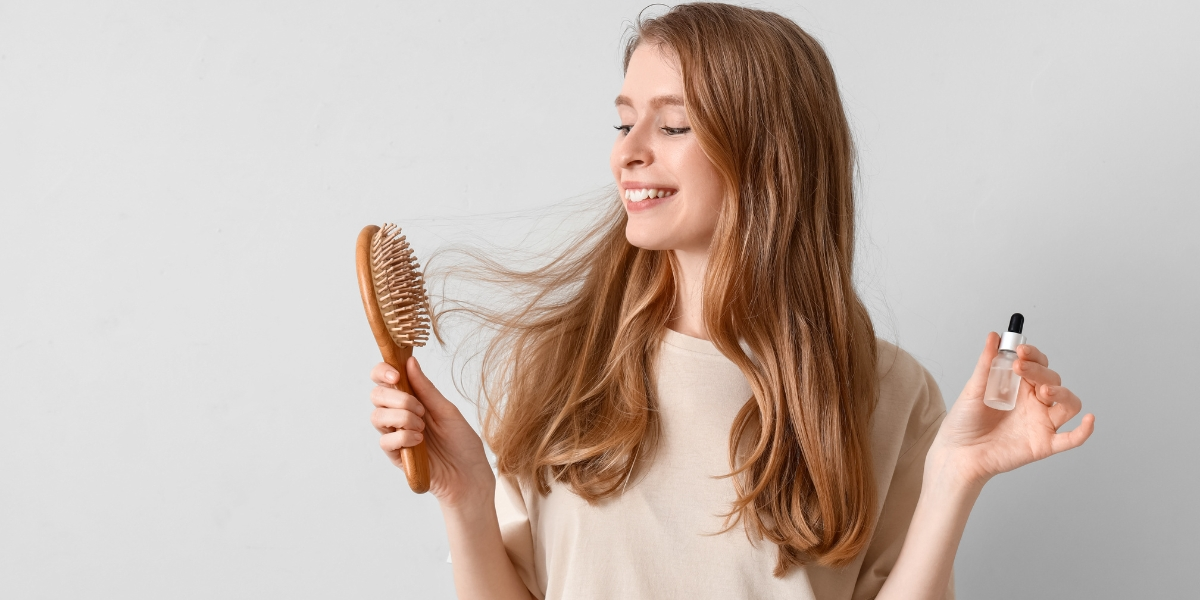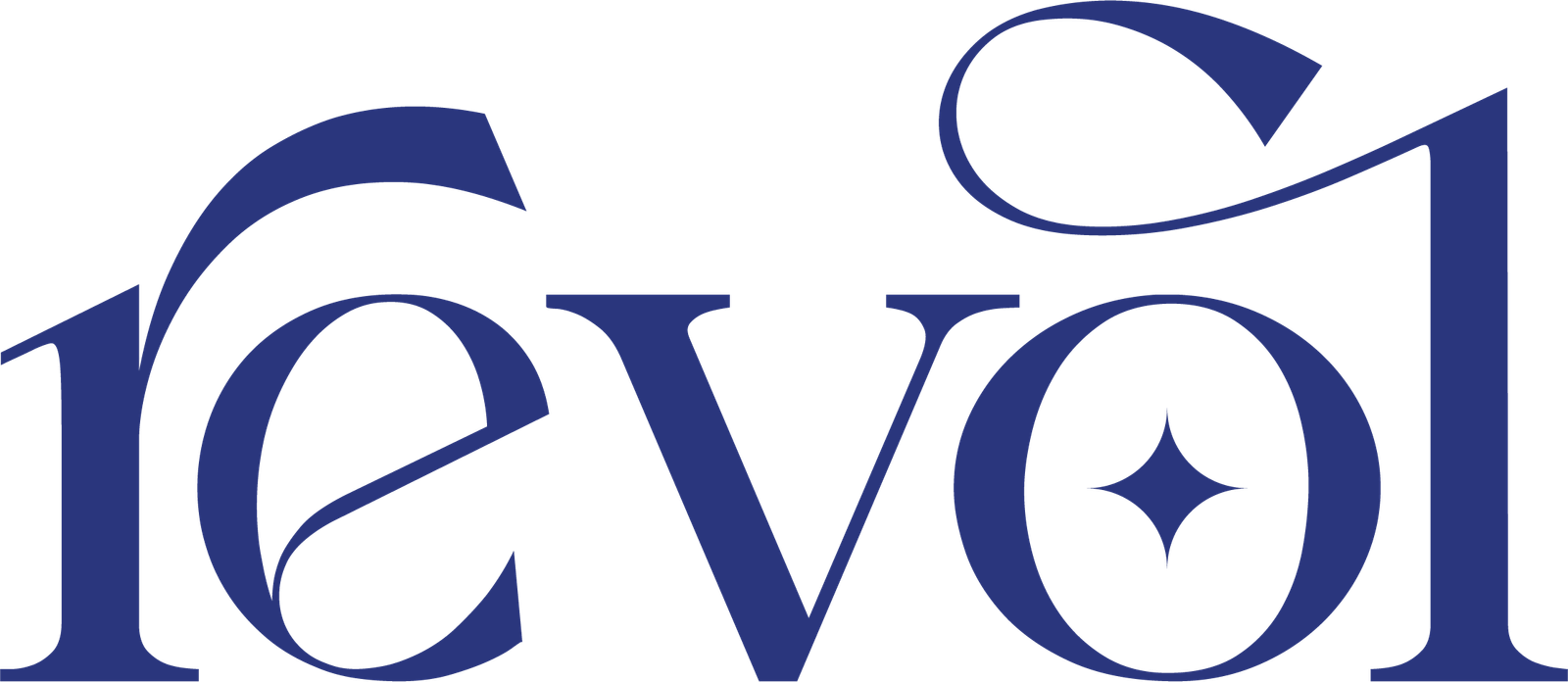Blog
Best Hair Growth Vitamins: Which Vitamin is Good for Hair?

Vitamins and supplements that promise hair growth almost sound too good to be true. Can taking a pill once or twice a day really make your hair longer, stronger and healthier?
Hair loss or thinning hair can be caused by a variety of culprits—including nutrition deficiencies. So while vitamins and supplements are not a miracle cure by any means, the right ones just might make a difference in the way your hair looks and feels.
Maintaining healthy, strong hair is a common concern, and vitamins play a crucial role in supporting hair growth and overall hair health. In Pakistan, where lifestyle and diet can impact hair health, knowing which vitamins are essential for promoting hair growth can make a significant difference. This guide provides a comprehensive look at the best hair growth vitamins, backed by research and tailored to the Pakistani context.
Introduction to Hair Growth and the Role of Vitamins
Vitamins are essential nutrients that the body needs for overall health, including hair health. While severe vitamin deficiencies are rare, some deficiencies—like those of iron or vitamin D—can contribute to hair loss, especially in menstruating women or people living in areas with limited sunlight. For most people, a balanced diet provides adequate vitamins, but vitamin supplements for hair can help fill any nutritional gaps. However, excessive vitamin intake does not necessarily lead to better hair growth and may even cause harm. It’s important to choose supplements wisely and focus on essential vitamins that promote healthy hair growth.
Which Vitamins Should You Take for Hair Growth?
The body requires various vitamins to maintain overall health, including hair health. Certain vitamins are particularly important for promoting hair growth and preventing hair loss. In this section, we will discuss the key vitamins that you should consider for your hair growth journey.
Why Vitamins Are Crucial for Hair Growth
Vitamins are organic compounds that support various bodily functions, including hair growth. Hair growth relies on a combination of vitamins and nutrients that help in the production of keratin, the protein that makes up hair, and ensure the health of hair follicles.
Hair growth and healthiness are influenced by a number of factors, including nutrition, genetics, medical conditions, hormones and even stress. Research finds that a deficiency in vitamins and minerals important for normal cell growth and function may contribute to hair loss.
“Vitamins are essential for healthy hair growth and may help in preventing hair shedding and thinning,” says Michele Green, M.D., a cosmetic dermatologist in New York. “The best vitamins for hair growth include vitamin B, vitamin D, vitamin E, zinc, biotin and iron.
Key Vitamins for Hair Growth
1. Biotin
Biotin, also known as Vitamin B7, is crucial for the synthesis of keratin and the metabolism of proteins and fats. It strengthens hair and prevents hair loss. However, biotin deficiency is very rare and almost always associated with an inherited disorder called biotinides deficiency.
Biotin deficiency has never been reported in healthy individuals with a normal diet, and there is no evidence that biotin supplements will help grow hair in the absence of a documented deficiency. Acquired biotin deficiency may occur with raw egg consumption, alcohol use disorder, pregnancy, and isotretinoin and antibiotic use. Notably, excess biotin intake may interfere with a number of important lab tests, including thyroid and other hormone tests such as pregnancy tests.
Natural Sources
Biotin deficiency is very rare because biotin is found in eggs, nuts, liver, wheat and oat cereals, several vegetables, rice, and dairy products, so even vegetarians and vegans can fulfill their body’s need for this vitamin.
Recommended Daily Intake
The FDA does not have a recommended daily allowance (RDA) for biotin. However, most sources state that a daily intake of 30 mcg is sufficient to prevent deficiency. Biotin remains commonly recommended by hair loss specialists at doses up to 5,000 mcg. Supplements are also popular, especially for those looking to address hair thinning. Biotin supplements generally cost between PKR 1,000 to PKR 3,000.
Excess Intake Risks
There are no reports of biotin toxicity even at very high doses of 100,000 mcg per day. However, there is also no evidence to support such doses for the treatment of hair loss or any other condition.
2. Vitamin D
Vitamin D is essential for bone health, but it also plays a role in hair follicle cycling. Deficiency in Vitamin D is linked to hair loss conditions such as alopecia. Vitamin D plays an important role in healthy hair development as well as in many other physiologic processes, so deficiency may have detrimental effects. However, exactly how deficiency impairs hair growth is unknown. There are reports in the literature of successful hair regrowth after correcting Vitamin D deficiency, but in areas such as the northeast US, where Vitamin D deficiency is very prevalent, supplements rarely bring clinical benefits. Hair loss specialists who regularly screen for Vitamin D levels help patients attain normal levels for all of its potential benefits.
Natural Sources
Dietary Vitamin D is most easily obtained through fortified foods such as milk, yogurt, orange juice, and cheese, in fatty fish including sardines, salmon and tuna, and in egg yolks and mushrooms. The prevalence of Vitamin D deficiency suggests that most people do not consume adequate dietary Vitamin D, nor have sufficient sun exposure for adequate skin conversion of Vitamin D. Supplements are often recommended for those with limited sun exposure. Vitamin D supplements are priced between PKR 800 and PKR 2,000.
Recommended Daily Intake
Most experts recommend a daily Vitamin D intake of 2,000-5,000 IU for adults, and checking Vitamin D blood levels at least annually in order to make appropriate adjustments in intake. Severe deficiency can be treated with high-dose prescription strength Vitamin D for short periods of time.
Excess Intake Risks
Severe Vitamin D deficiency is defined as blood levels of 20 ng/ml or less, mild deficiency at 30-50 ng/ml, and normal levels at 50-70 ng/ml. Levels above 80mg/ml are excessive, and severe toxicity, known as hypervitaminosis D or vitamin D intoxication occurs at levels above 150 ng/ml. This would require extremely high daily doses over a long period, with symptoms including bone pain and kidney problems, such as the formation of calcium stones. Progression to confusion, apathy, recurrent vomiting, abdominal pain, and dehydration may occur if supplements are not stopped.
3. Vitamin A
Vitamin A is a fat-soluble vitamin essential for cell growth and repair. It helps produce sebum, an oily substance that keeps the scalp moisturized, preventing dryness and promoting healthy hair growth. Vitamin A is an essential nutrient critical to normal vision, gene expression, reproduction, embryonic development, growth, and immune function.
Both deficiencies and excess levels can contribute to disease states, and for hair, in particular, deficiency can lead to follicular hyperkeratosis. Vitamin A is part of a family of compounds including retinal, retinol, retinoic acid and carotenoids. Vitamin A deficiency is rare outside of developing countries and is unlikely to play a role in hair loss for the majority of patients. Notably, high intake of Vitamin A during pregnancy may be associated with birth defects.
Natural Sources
Vitamin A is found in a variety of meats, fish and vegetables, including carrots, salmon, kale, sweet potatoes, spinach, dried apricots, broccoli, butter, butternut squash, cantaloupe, mango, red bell pepper, goat cheese, peas, cow’s milk, tomato, beef liver, pumpkin, eggs and grapefruit. In addition, Vitamin A is fat soluble and extensively stored in the liver, so for most people even prolonged periods of inadequate intake will not lead to clinical deficiency. Vitamin A supplements are also available but should be taken in moderation. Vitamin A supplements typically range from PKR 500 to PKR 1,500, depending on the brand and dosage.
Recommended Daily Intake
The Recommended Dietary Allowance (RDA) for vitamin A is 900 micrograms (mcg) retinol activity equivalents (RAE) per day for men and 700 mcg RAE per day for women. This is equivalent to 3,000 international units (IU) for men and 2,333 IU for women.
Excess Intake Risks
Vitamin A toxicity is rare, with the most severe examples occurring after ingestion of polar bear liver, which can be fatal. Excess supplementation over 10,000 IU per day may produce symptoms including blurred vision, nausea, vomiting, dizziness and headache, nervous system effects, liver abnormalities, fatigue, muscle weakness, bone and skin changes and others. The adverse effects of both acute and chronic toxicity are reversed after consumption is stopped.
4. Vitamin C
Vitamin C is a powerful antioxidant that helps in the production of collagen, a protein essential for hair strength and structure. It also aids in iron absorption, which is vital for hair health.
Vitamin C is another essential nutrient required for the biosynthesis of collagen, L-carnitine, and certain neurotransmitters, and is also involved in protein metabolism. Collagen and other proteins are important for healthy hair growth. Vitamin C helps the absorption of plant-based iron, another important nutrient for healthy hair growth.
Natural Sources
Natural sources of Vitamin C include all citrus fruits, red and green bell peppers, tomatoes, broccoli, brussels sprouts, potatoes, spinach, green peas, cantaloupe and strawberries. Supplements are also available for those needing additional support. Vitamin C supplements usually cost between PKR 500 and PKR 1,500.
Recommended Daily Intake
The RDA for Vitamin C is 90 mg daily for men and 75 mg daily for women, with higher intake during pregnancy and lactation.
Excess Intake Risks
Excess Vitamin C intake does not generally cause toxicity, but can result in gastrointestinal distress, insomnia, headaches and rarely kidney stones. Most excess Vitamin C is excreted unmetabolized in the urine.
5. Vitamin E
Vitamin E is best known for its role as an antioxidant and ability to reduce oxidative stress. Oxidative stress plays a role in many disease states and occurs naturally in the body as well as externally from environmental factors. While its direct role in hair growth is poorly characterized, adequate intake of Vitamin E is beneficial and important for overall health. For more tips on keeping your hair healthy during challenging conditions, check out our Top 10 Winter Hair Care Tips.
Natural Sources
Natural sources of Vitamin E include wheat germ oil, avocados, almonds, mangos, sunflower seeds, peanut butter, bell peppers, fish and some meats. However, rather large quantities of these foods would be required to satisfy daily needs, such as five avocados or ten mangos daily, so oral supplements are a simpler method of maintaining adequate daily intake. Supplements are also available if dietary intake is insufficient. Vitamin E supplements typically range from PKR 600 to PKR 1,800.
Recommended Daily Intake
The RDA for Vitamin E is 15 mg (22.5 IU) daily for men and women.
Excess Intake Risks
Toxic doses of Vitamin E begin at 20 times the RDA and may produce symptoms including nausea, diarrhea, stomach cramps, tiredness, dizziness, blurred vision and headache.
6. Vitamin B9 (Folic Acid)
Folic Acid, or Vitamin B9, is essential for DNA synthesis and repair, which is critical for healthy hair growth and preventing premature graying. Folic Acid is a B vitamin and is one of the few vitamins that have a very specific potential benefit for hair growth in that it helps regulate keratin production, which is the primary protein of the hair shaft.
A deficiency of Folic Acid may lead to thinning of the hair shafts as well as overall hair loss. However, there is little evidence that Folic Acid supplementation produces clinical benefits in most patients with hair loss. Individuals at greater risk of Folic Acid deficiency include those with alcohol use disorder, pregnant women.
Natural Sources
Natural sources of Folic Acid include vegetables (especially dark green leafy vegetables), fruits and fruit juices, nuts, beans, peas, seafood, eggs, dairy products, meat, poultry, and grains. Spinach, liver, are among the foods with the highest folate levels. Supplements are also available. Folic Acid supplements generally cost between PKR 500 and PKR 1,200.
Recommended Daily Intake
The RDA of Folic Acid is 400 mcg for both men and women, with higher intake during pregnancy and lactation.
Excess Intake Risks
Excess folic acid is excreted in urine. A high folate intake can mask vitamin B-12 deficiency until its neurological effects become irreversible. Other rare side effects include stomach upset, nausea, diarrhea, irritability, confusion, behavior changes, skin reactions and seizures.
Essential Nutrients for Hair Growth in Pakistan
1. Iron
Iron is a mineral crucial for oxygen transport in the blood. Iron deficiency can lead to anemia, which is a common cause of hair loss. The most common nutritional deficiency in the world is iron deficiency, and iron deficiency is common in women with hair loss. However, the association between hair loss and low serum ferritin levels remains controversial. While testing for and correcting iron deficiency is always prudent, significant improvement in hair loss in these individuals cannot be assured.
Natural Sources
Iron is found in many natural sources, including red meat, fish, poultry, fruits, lentils, and spinach, grains, and more. Supplements are often recommended for those with diagnosed deficiencies. Iron supplements typically cost between PKR 400 and PKR 1,000.
Recommended Daily Intake
- Men and postmenopausal women: 8 mg/day
- Premenopausal women: 18 mg/day
Excess Intake Risks
The upper limit for safe iron intake is 45 mg per day for adults. Excess iron is deposited in organs throughout the body and can cause organ damage due to the formation of reactive oxygen species. The liver, heart and endocrine glands are the most notable organs with iron deposition. Extremely high doses can cause organ failure, coma, convulsions and death.
2. Magnesium
Magnesium is a mineral that plays a role in the functioning of enzymes involved in DNA and RNA synthesis, as well as in cell replication. Thus, it helps support normal hair shaft growth. Magnesium is also involved in the production of proteins including keratin, the primary component of the hair shaft. While magnesium deficiency is suspected as playing a role in hair loss and some forms of gray hair, strong evidence is lacking. Most people get enough magnesium from their diet and do not need to take supplements.
Natural Sources
Magnesium is found in many plant and animal foods, including bananas, leafy green vegetables, fruits, beans, soy products, seafood and dairy.
Recommended Daily Intake
- Men: 400–420 mg/day
- Women: 310–320 mg/day
Excess Intake Risks
Magnesium toxicity is rare with symptoms including irregular heartbeat, low blood pressure, confusion, slowed breathing, coma and death.
3. Zinc
Zinc is an essential trace element, and severe zinc deficiency is associated with hair loss in infants with poor nutrition, malabsorption conditions, alcohol use disorder and pregnancy. The role of zinc in most forms of hair loss is poorly established, and supplements do not reliably result in hair growth in most individuals.
Natural Sources
Natural sources of zinc include oysters, meat, eggs, fish, nuts and dark chocolate.
Recommended Daily Intake
The RDA for adults is 8 mg/day for women and 11 mg/day for men.
Excess Intake Risks
Excess zinc intake symptoms include nausea, vomiting, loss of appetite, abdominal cramps, diarrhea and headaches.
Other Essential Nutrients for Hair Health
- Proteins in general and collagen in particular are important for the growth of all skin and hair structures. A healthy and varied diet provides the body with all it needs to produce these proteins. Omega-3 fatty acids are best known as benefiting heart health and may indirectly improve scalp circulation and assist hair follicle nutrition. Little scientific data exists demonstrating direct benefits to hair growth.
- Selenium is another essential trace element associated with hair loss in very specific situations of poor nutrition. Deficiency has also been associated with reversible gray hair development and supplementation benefitted hair growth in patients undergoing chemotherapy. The availability of selenium in a variety of foods, such as meat, vegetables, and nuts, is sufficient to meet the daily requirement.
- Pantothenic acid (B5) is part of the B complex of vitamins that aids in cell metabolism. Deficiency of this vitamin has not been associated with hair loss.
-
Rose Water also facilitates hair silky plus helps to circulate blood on the head, which in turn strengthens the head. This helps in feeding nutrients to the hair roots, thus promoting hair growth in women. To learn more, you may have a look upon: Is Rose Water Good for Hair? Here’s What to Know in 2024
Choosing the Right Supplements
With rare exceptions noted in this discussion, the availability of vitamins and minerals in a varied and healthy diet makes supplementation unnecessary for most individuals. When supplements are desired, there are many choices for multivitamins or individual vitamins that are readily available and inexpensive. There are also several heavily marketed “hair loss” supplements that are very expensive and that lack scientific credibility.
Anyone experiencing hair loss and interested in treatment should first see a health care professional such as a Board-Certified Dermatologist for a thorough examination and assessment. Early intervention with the correct medications and supplements should provide the best long-term benefits.
Expected Results and Timeline
Unfortunately, improvement in hair growth rate and quality can take months to become noticeable, as individual hair shafts grow only about 1 mm per day. Accordingly, when beginning a treatment program, patience is needed and one should only make status checks every three months or so.
Conclusion
Incorporating the best vitamins for hair growth into your daily routine can significantly impact your hair health and growth. From Vitamin A to Iron, each plays a unique role in supporting strong and healthy hair. Tailoring your vitamin intake to your specific needs can enhance your results and overall well-being. Are you ready to boost your hair health with the best vitamins? Visit Revol.pk to explore our range of high-quality hair and beauty products. Your journey to healthier, more vibrant hair starts here!
FAQs
How do I know if I need hair growth vitamins?
Signs of vitamin deficiency include excessive hair shedding, thinning hair, and dry scalp. A blood test can confirm deficiencies and guide appropriate supplementation.
What are the best vitamins for hair growth?
The available evidence supports the routine use of only three supplements: Vitamin D, Iron and Vitamin C, mostly for its effects on improving iron absorption. Overuse of biotin can lead to dangerously false laboratory results, and while other supplements are unlikely to cause harm, there is little evidence that they will provide benefit.
Do vitamins really help hair growth?
All vitamins are essential for normal growth and development and that includes healthy hair, skin and nails. We obtain most of what the body requires through our daily diet, so supplements are rarely needed.
What vitamin deficiency causes hair loss
Deficiencies in several vitamins, including Vitamin D, Vitamin C and Zinc, have been associated with hair loss.
Can too much biotin cause hair loss?
Biotin excess is not known to cause hair loss.
Can lack of zinc cause hair loss?
Severe zinc deficiency causing hair loss is rare, and generally seen with specific nutritional deficiencies.
Is biotin safe for kidneys?
There are no reports of toxicity to excess biotin intake, including for the kidneys.
How much magnesium should I take for hair growth?
The RDA of magnesium for adults is 400–420 mg per day for men and 310–320 mg per day for women.
Does low magnesium cause gray hair?
Magnesium deficiency has been associated with development of gray hair under certain circumstances but not with the genetically programmed gray hair that most people experience.
What happens if you take too much vitamin D
Long-term excess intake of Vitamin D can produce bone pain, kidney stones and other symptoms.





